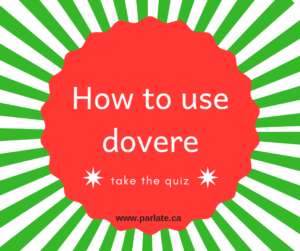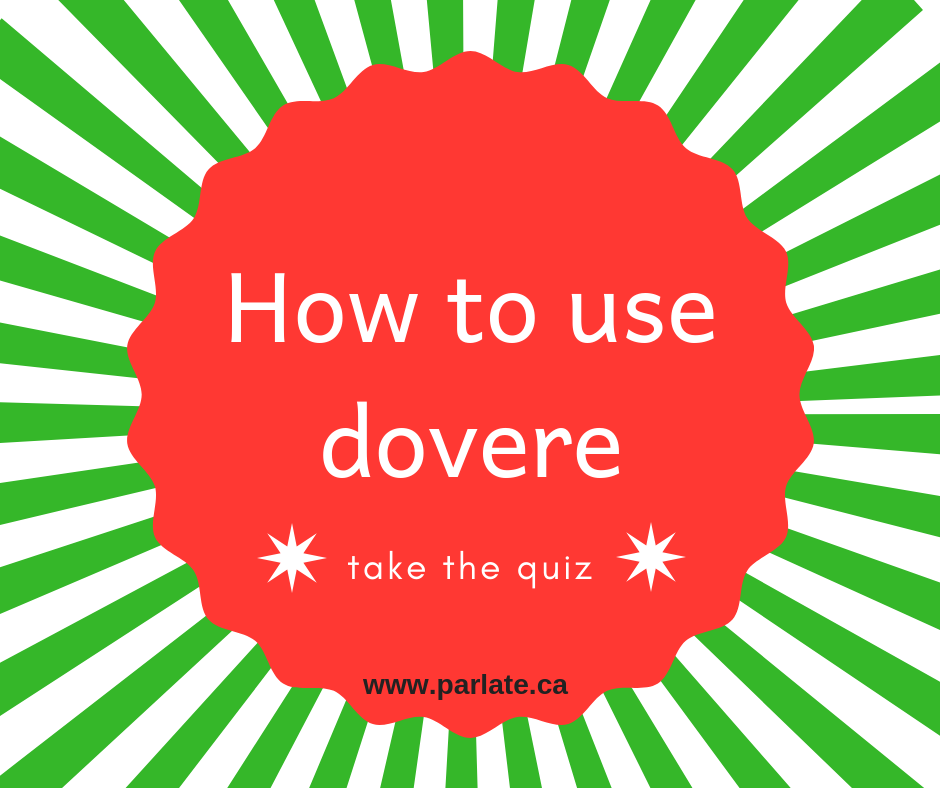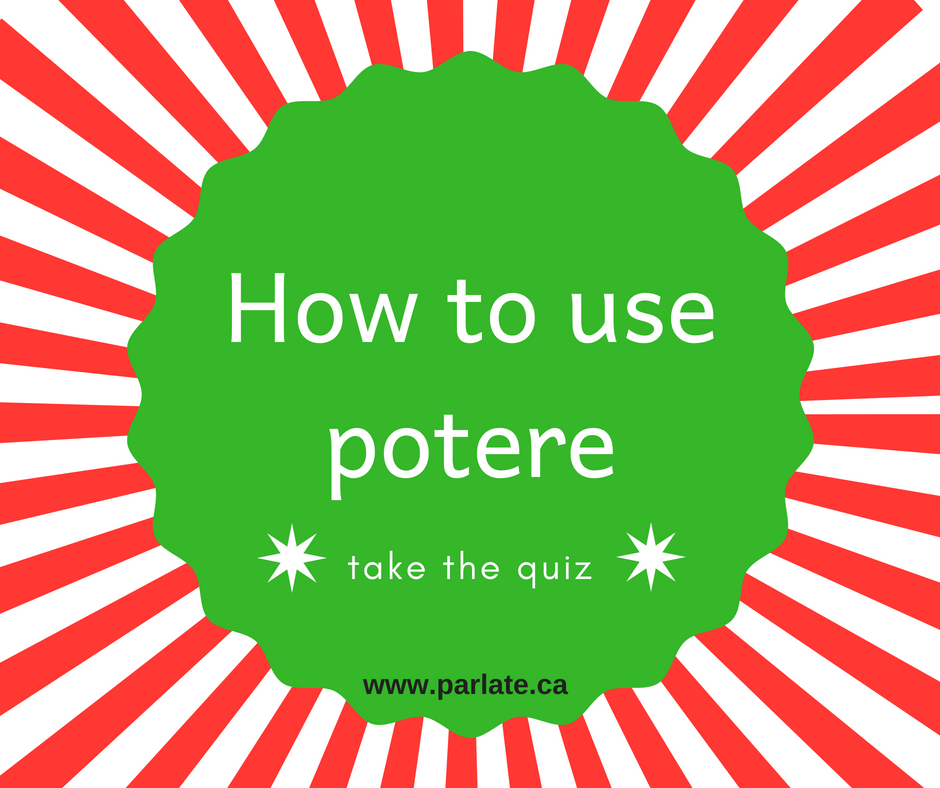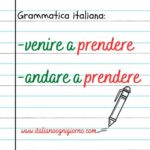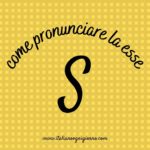How to use the verb potere
Uno dei verbi che crea più confusione è “potere”, soprattutto se nella lingua madre dello studente si traduce in modo diverso.
Il verbo “potere” appartiene al gruppo dei verbi conosciuti come i verbi servili o verbi modali, che include anche “volere” e “dovere”.
La cosa difficile dei verbi servili è sapere quando usare l’imperfetto e il passato prossimo.
Ecco due regole da seguire:
Potere + imperfetto:
- Potevo fare…, e l’ho fatto o non l’ho fatto….;
I could have done…, but I did or didn’t;
- Avevo il permesso di fare qualcosa;
I had permission to do something;
Potevo finire di mangiare la cena prima di uscire, ma non l’ho fatto.
– I could have finished eating dinner before going out, but I didn’t.
Potevo uscire solo se finivo tutti i compiti.
– I could go out only if I finished all my homework.
Potere + passato prossimo :
- Ho potuto fare qualcosa e l’ho fatto;
I was able to do something and I did it;
- non ho potuto fare qualcosa e non l’ho fatto;
I wasn’t able to do something and I didn’t do it;
Ho potuto finire di mangiare la cena ieri sera perché avevo tempo.
– I could finish eating dinner yesterday because I had time.
Non ho potuto finire di mangiare la cena ieri sera perché non avevo tempo.
– I couldn’t finish eating dinner yesterday because I didn’t have time.
Tutto chiaro? Prova a fare il quiz e fammi sapere come va nei commenti.
Se conosci qualcosa che ha difficoltà con i verbi servili inviagli questa spiegazione.
Alla prossima,
Mirella
Quiz: how to use potere
Information
You have already completed the quiz before. Hence you can not start it again.
You must sign in or sign up to start the quiz.
You have to finish following quiz, to start this quiz:
(English follows)
One of the most confusing verbs to learn is “potere”, especially if it translates differently into a student’s native language.
The verb “potere” belongs to the group of verbs known as i verbi servili or verbi modali, along with “volere” and “dovere”.
The tricky thing about using i verbi servili is knowing when to use l’imperfetto and il passato prossimo.
Here are two rules to follow:
Potere + imperfetto:
- I could have done…, but I did or didn’t…;
- I had permission to do something;
Potevo finire di mangiare la cena prima di uscire, ma non l’ho fatto.
– I could have finished eating dinner before going out, but I didn’t.
Potevo uscire solo se finivo tutti i compiti.
– I could go out only if I finished all my homework.
Potere + passato prossimo :
- I was able to do something and I did it;
- I wasn’t able to do something and I didn’t do it;
Ho potuto finire di mangiare la cena ieri sera perché avevo tempo.
– I could finish eating dinner yesterday because I had time.
Non ho potuto finire di mangiare la cena ieri sera perché non avevo tempo.
– I couldn’t finish eating dinner yesterday because I didn’t have time.
Tutto chiaro? Try the quiz and let me know in the comments how it goes.
If you know someone who struggles with i verbi modali, or with any Italian verbs, share this with them!
Alla prossima,
Mirella
Quiz: how to use potere
Information
You have already completed the quiz before. Hence you can not start it again.
You must sign in or sign up to start the quiz.
You have to finish following quiz, to start this quiz:
